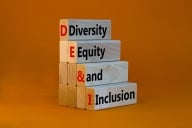You have /5 articles left.
Sign up for a free account or log in.
Time to return some interloan books to the library. A couple are already one day overdue. I'm nervous as I slip them all into a slot at Circulation. A librarian appears, and seems to frown at me. "Oh-oh," I exclaim. "Me?" "No, not you," she reassures. "OK?" I reply, "but if I see a paddle." "Ah yes," she muses, regarding my books, "the dreaded interlibrary loan paddle."
I can't help it: I like librarians. Such incidents as this have been typical of a lifetime's experience with them. Dour? To me, they are usually witty. Reticent? Far more often straightforward. Narrow-minded? Some of the most liberal people I've known (if seldom very well) have been librarians.
One doesn't have to look very hard to see why stereotypes about them have arisen. Librarians are entrusted to care for books. That is, in a very real sense, they stand over and against the rest of us, who variously desire to remove the books from the library. What about return dates, active library cards, and numerous other rules, some apparently known only to librarians? We don't care.
Librarians have to care, and thus suffer a slippage whereby caring for books becomes being perceived by the public as guarding them. Thereby, a mean-spirited, censorious figure is born, figured forth as a crone. (In the popular imagination, librarians are always women.) Her hair is in a bun, and a scowl is on her face. We have done something wrong merely by entering the library. How dare we?
And, once inside, how dare we proceed to talk? Another slippage: the library into a shrine, wherein the god of Knowledge is to be venerated by all who enter, while Vestal Virgins preside. The librarian is a chaste figure, as befits both her devotion to the library and her dedication to its ceremonies. Ours is a selfish interest. Hers is pure. How do librarians cope with this comprehension of their situation? It depends upon individuals, I suppose. The first one I ever knew at all well was in fact a man. I never got round to asking him how he dealt with the fact that librarians are customarily women. He just seemed to stroll though his daily rounds, happy to pause if a question sparked his intellectual interests, which were "not inconsiderable."
In my experience, librarians like to use such phrases, or at least the academic ones do. (The ones who aren't academic either long to become so or else at least to work at a branch where questions from the public are likely to be more interesting than where books about basset hounds are located.) They are the sort of people best described as "bookish," only now turned inside out and suddenly stationed at the Information Desk.
Part of the reason I like librarians is that I like bookish people. They often don't know what to do with their bookishness. Librarians can earn a living by it, as long as local politics, faculty, or students don't become too oppressive. Teachers can earn a living by being bookish, too, although it's harder for them to hide in the stacks, which is where bookish people really want to be.
Hence, the surprise -- to me -- that so many librarians are so friendly: genuinely responsive to the most mundane questions, eager to help, willing to take time to initiate a search of some sort. Of course this is the public script on whose basis they are trained. Bookish or no, librarians exist to serve . . . the community, the public, the world. (Pick one.) Damned if this isn't pretty much what they try to do, in just about every library on every campus I've known.
In this, they are at times shockingly in contrast to comparable figures situated either above or below them. Faculty labor under no comparable imperative to be helpful -- to students, to visitors, to anybody; office doors can easily shut, or chairs swivel to a back wall. Staff often seem under some imperative to be unhelpful; the secretary at the dean's office or the clerk at Human Services can send just about anybody away steaming with anger at having been treated rudely. One simply does not hear such stories about librarians. The contrasts are striking. Perhaps they are explained by the difference between a library and all other buildings. None focuses a campus like a library. No building is comparably open to all and none so wholly represents -- no, literally possesses -- the very rationale of the college or university itself.
(I knew a student once who was trying to date the university's star gymnast. At one point he asked to meet her at the entrance to the library. "Where is the library?" she asked. "Imagine!" he exclaimed later to me, "a senior who doesn't even know where the library is! What has she been doing here for four years!" If I recall correctly, this killed the courtship.)
If behind each professor stands a grade or the next assignment, and behind each staff member a parking ticket, a transcript, or a tuition payment, behind each librarian stands one simple, profound thing: a book. It is more difficult, I believe, to relieve librarians of the mantle of learning, and they accept this, quite apart from individual styles in wearing the garment.
At the present time, however, it might be more clouded than ever before in the history of libraries to see the book, because it is rapidly being replaced by a computer. We may expect stereotypes of librarians to change accordingly; books need not be guarded once they turn into computer terminals, and shrines cannot retain their hushed atmosphere once they are regarded by their patrons as merely locations to do e-mail.
How these developments, in turn, result in changed self-perceptions for librarians, I cannot say. For example, it is easy to imagine that now many now "serve" under different sources of discontent. Where heretofore they may have been annoyed at irritating questions, are they now bored, either because they get few questions anymore or because all of them have to do with the internet (or DVD's, tapes, and audio books)?
Or do younger librarians regard the computer as older ones regard the book? The other day I was talking to a librarian who told me she was never professionally happier than at present, being able to initiate so many searches on the internet or in special databases for so many people, rather than just cataloguing, cleaning, ordering, or referring to books. How much does it matter that she works for the central branch of the city?
What will happen to my own beloved figure, whether or not she really is -- or was -- as bookish as I like to think? Already there has arisen a new generation of students who think of the library as more akin to a chat room or a cafeteria, and enter with cell phones at the ready, looking for tables to spread their sandwiches. Today's librarian has to extend her authority over such students.
To me, so far it's not a happy sight. It's one thing to joke about having a paddle. It's quite another to wield one, or wish you could. Of course it's another thing altogether to design PowerPoint presentations to incoming students about all the library offers. Is the venerable "visit to the library" now a more exciting occasion, at least for librarians, than it ever was in the past?
And so it goes. It might be more difficult at present to generalize about librarians than it is about faculty members, even including those librarians who would like to be faculty. The first poem that comes to mind when I think about libraries is Randall Jarrell's, "Children Selecting Books in a Library." It's as lovely upon rereading as I remember. But now I see one problem: there is no mention of librarians.
My own ideal library is inconceivable without them. Buns and scowls and all, I don't care. That we need our librarians is obvious. (And evolving.) That we must value our librarians is no less so. A college or university may in fact be no better than its own librarians. But in my experience this continues to be exactly the case, and I wish we would value more than we do both the human interaction as well as the ideal knowledge they represent.








